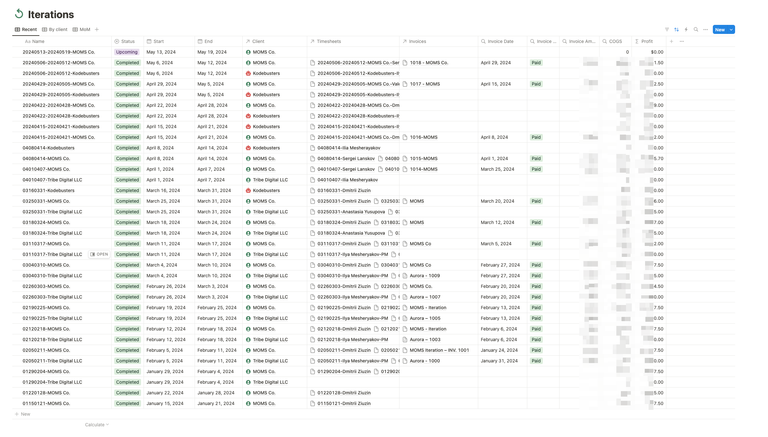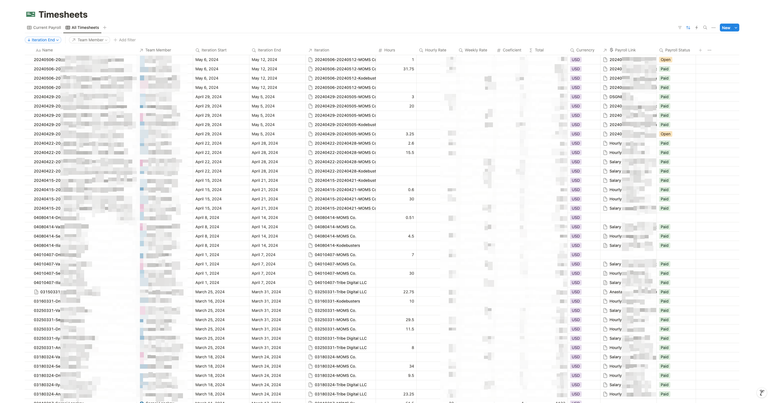Automating Digital Agency's Operations with Notion and Make.com

In September 2023, together with my co-founders Gleb and Alex, we launched Kodebusters, a No-Code agency. Our vision was clear: create an ultra-efficient organization with minimal overhead. The key to achieving this was streamlining operations and automating routine tasks, allowing us to focus on growth and client satisfaction rather than manual, time-consuming processes.
The Challenge: Streamlining Business Processes
We structured our business processes to maximize efficiency from day one:
- Client Onboarding: Each new project begins with a set budget, typically starting at $2,500 per iteration.
- Weekly Sprints: Work is divided into weekly sprints, running Monday through Sunday (some freelancers tend to work during the weekends although we didn't quite endorse that). The team commits to a specific scope that’s approved by the client, and our focus is on delivering the best outcome within the week.
- Time Tracking & Invoicing: Our team, typically consisting of a PM, a designer, and a developer, tracks their time using Toggl. Invoices are sent to customers every Monday, reflecting the previous week’s work.
- Payouts: Every two weeks, payouts are processed for the team based on the hours tracked multiplied by their own rates.
To maintain profitability, our team’s ability to hit sprint goals efficiently is critical. This is where automation became essential—helping us reduce overhead, streamline processes, and ensure that data was always up to date.
The Solution: Automating with Notion and Make.com
To reduce manual labor and save time, I integrated Notion and Make.com to handle recurring tasks, centralize data, and ensure we had full visibility into project performance.
I set up linked databases in Notion to track:
- Clients and Projects: Basic details about each project.
- Iterations: Every sprint is recorded, linked to a specific client and project. Timesheets, start and end dates, status, and related invoices are all included.
- Team Directory: Information about team members, their roles, and rates.
- Timesheets: Team members log their hours weekly, and payroll amounts are calculated based on their hourly rates.
- Payroll: A real-time view of team payouts (done bi-weekly).
- Invoices: Automated invoice generation and tracking.
Automating with Make.com: Three Core Scenarios
Once the foundation was built in Notion, we used Make.com to automate three key processes, saving hours of manual work every week:
1. Consolidating Payrolls
Every Monday, this scenario processes completed iterations:
- It reviews all active projects and pulls data from timesheets.
- Payroll entries are automatically consolidated for each team member based on tracked hours.
- The system then archives the completed iteration.
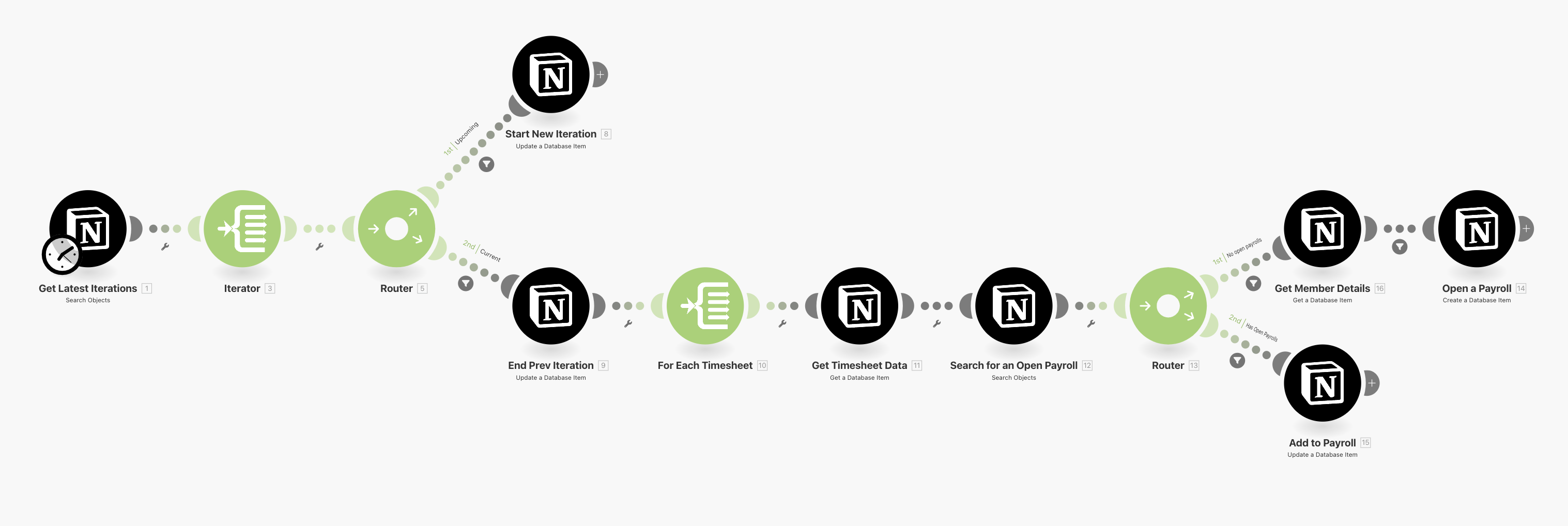
2. Preparing Upcoming Iterations
This scenario prepares new iterations for the upcoming week:
- For each project, a new iteration is created in Notion with the status set to “upcoming.”
- Void time entries are created for each team member, ensuring they are ready to track their hours for the next sprint.

3. Generating Invoices
This scenario handles invoice generation:
- Unprocessed invoice entries are identified in Notion.
- Client data and iteration totals are passed into a Google Docs template, generating a PDF invoice.
- The PDF is then attached to a draft email in Gmail and sent to the client.
- The invoice record is updated with the relevant status and link.
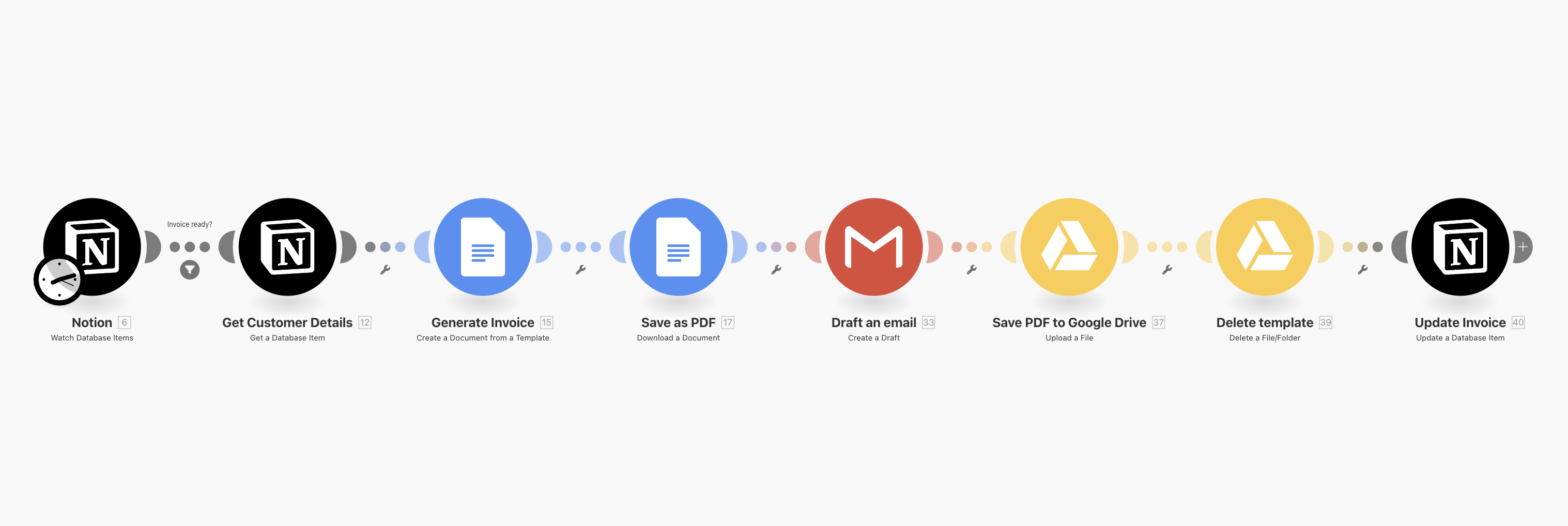
The Outcome: 20+ Hours Saved Each Month
The implementation of Notion and Make.com has resulted in significant time savings—freeing up over 20 hours per month that would have otherwise been spent on operational tasks like payroll consolidation and invoice generation. This time has been reinvested into growth initiatives, enabling the management team to focus on strategy and client relationships rather than repetitive administrative tasks.
The automation also gives us real-time insights into the agency's performance, allowing us to quickly identify inefficiencies and make data-driven decisions to keep projects on track and ensure profitability.
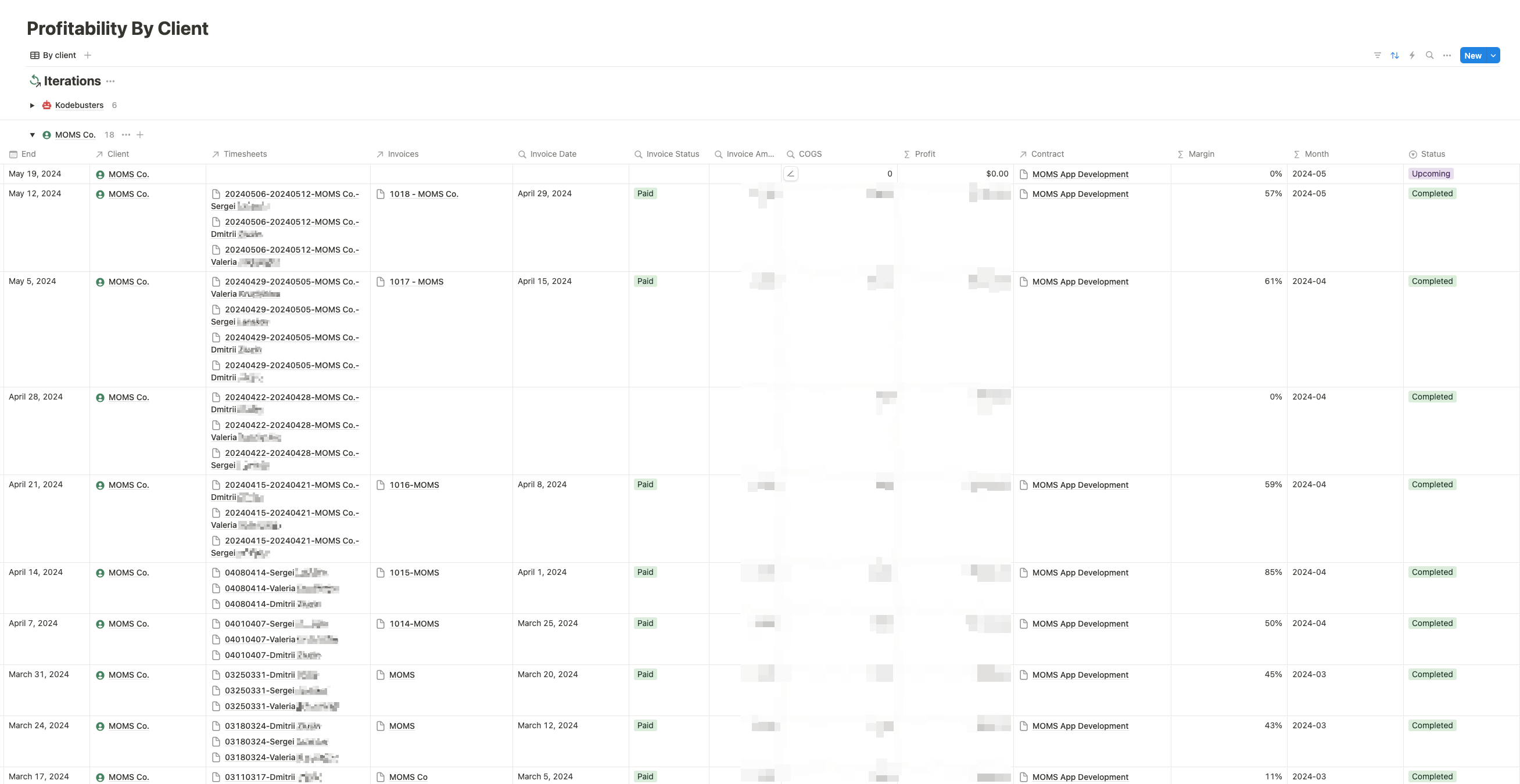
Conclusion
By integrating Notion and Make.com, we’ve transformed our operational processes. What was once a series of manual tasks now runs seamlessly in the background, allowing us to scale the agency efficiently while maintaining a lean operation. The system not only saves time but also provides crucial visibility into our projects and finances, empowering us to act quickly and stay agile.
